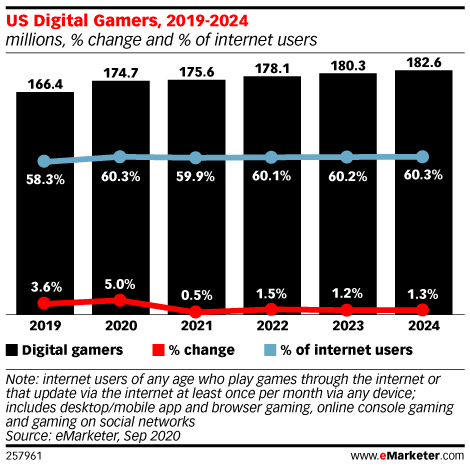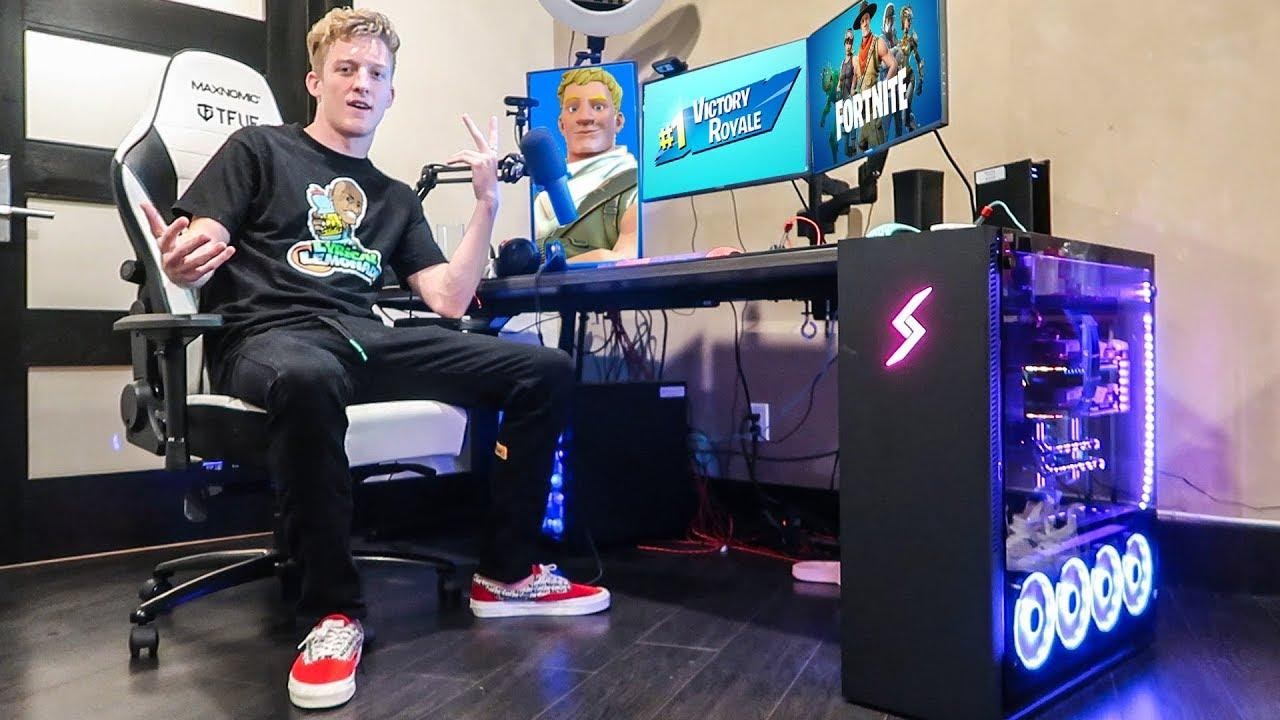The electronic sports industry (“eSports”) has skyrocketed since the early 2000s thanks in part to gaming dominant streaming services like Twitch. It is estimated that the number of US digital gamers will jump by around five percent in 2020 to 174.7 million. 1It is also estimated that eSports will garner an audience of 495 million viewers in 2020 and reach over $1 billion in revenue for the first time ever. 2This unprecedented increase in popularity has given rise to professional gamers, gaming personalities, and content creators (“professional gamers”). With professional gamers being paid from as low as $1,000 a month to as high as $6 million a year, one has to examine how eSports contracts are managed. 3eSports contracts are a complicated issue because of the relative newness and unpredictability of the eSports market.

Since eSports is a fairly new market, it functions in a largely unregulated space where “there is a lack of standardized contracts, no collective bargaining, and unestablished standard working conditions.”4 In addition, there is a general imbalance in the levels of commercial sophistication of contracting parties. Many times, eSports contracts are agreed upon between unrepresented young gamers with little commercial experience and large media companies with large amounts of resources. As a result, eSports contracts may end up being unfair and unethical. Back in December 2019, an anonymous professional gamer (“Player 1”) leaked a contract that illustrates the unfair and unethical working conditions that gamers may be subjected to.5 The contract in question stated that if Player 1 was transitioned to a substitute player then he or she must live stream games for 120 hours per month without receiving any salary for his or her efforts6.
Perhaps more alarmingly, an exclusivity clause in the contract prevents the player in question from working elsewhere – despite being an independent contractor, not an employee – and they only receive income that’s earned from solo live streams. If streaming in collaboration with the organisation or a sponsor, then the organisation retains 100 percent of the revenue generated by the player. There’s nothing stopping the organisation from forcing a sponsored stream upon the player, creating a potentially turbulent and unpredictable schedule in which they’re unable to earn any sort of income7.
Although it is impossible to know for sure, it is highly possible that other professional gamers may be locked into similar unfair contracts.8
Recently, Turner Tenney, popularly known online as “Tfue” found himself in a contract dispute with Faze Clan, his former eSports team. On May of 2019, Tfue filed a lawsuit against Faze Clan in California State Court arguing that the contract (“Gamer Agreement”) that he signed with the team back in 2018 was “oppressive, onerous, and one-sided in favor of Faze Clan.9” They claimed that the Gamer Agreement allowed Faze Clan to collect up to 80 percent of what he earned from third parties.10 Tfue also claimed that the Gamer Agreement hindered his ability to obtain his own sponsorship deals without the prior written consent of Faze Clan.11 Faze Clan denied all allegations made by Tfue, and released a Twitter statement claiming that it has not collected any of Tfue’s tournament winnings, Twitch revenue, YouTube revenue, or revenue from any special platforms. Faze Clan added that it has only received $60,000 in relation to the Gamer Agreement, while Tfue has experienced an “incredible growth” in popularity from his affiliation with Faze.12To make things even more complicated, Tfue classified himself as an “artist” and also alleged that Faze Clan violated California’s Talent Agency Act (“TAA”) because it was not a licensed talent agency. The TAA protects artists and prevents unlicensed talent agencies from making “binding promises on behalf of a performer.” As a result, artists’ contracts with unlicensed talent agencies are non-binding and the artists can recover all fees earned by an unlicensed talent agency.13

Based on a “forum selection clause” in the Gamer Agreement, Faze Clan brought a countersuit in New York Federal Court alleging that Tfue disparaged the team in violation of his contract, stole its confidential information, and interfered with business contracts and relationships in order to start his own rival eSports team. As a result of the New York case, the California court offered to either dismiss its case and let the case move forward in New York with California’s TAA applied or stay its case until the New York case is completed.14 After summary motions were rejected, Faze Clan and Tfue decided to settle and Tfue was released from the Gamer Agreement. Although, Tfue’s lawsuit was never settled in court, it sheds light on some eSports contract issues that have to be resolved.
The first issue it sheds light on is what constitutes an “oppressive, onerous, and one-sided” contract? A court may find a contract unconscionable and refuse to enforce it if is “unfair or oppressive to one party in a way that suggests abuses during its formation.15
A contract is most likely unconscionable if it is substantively unfair and unfairly bargained for. “An absence of meaningful choice by the disadvantaged party is often used to prove unfair bargaining.16” In Tfue’s case, he already had an established brand and most likely had options to sign with other companies. Additionally, Faze Clan argued that he was an adult when he agreed to the contract and that they took a risk by signing him. It could be argued that the terms of the Gamer Agreement were fair when it was first signed and Tfue simply wanted to get out of the contract once his popularity skyrocketed. Allowing Tfue out of his contract creates a slippery slope. It opens up the door to other professional gamers who may want out of their contracts once they are no longer favorable to them. This will likely result in eSports companies not wanting to take risks on less established gamers. For example, companies will not want to spend time, money, and resources to help popularize professional gamers if said gamers can easily dishonor their contracts. Since eSports is a relatively new field there are no standards for what constitutes a fair eSports contract. Only time will tell when such standards will be set.
The next issue that needs to be tackled is if professional gamers should fall under the scope of “artists” in the TAA. Under California’s labor code, “artists” include actors, actresses, radio artists, musical artists, musical organizations, directors, writers, cinematographers, composers, lyricists, arrangers, models, and “other artists and persons rendering professional services in motion picture, theatrical, radio, television and other entertainment enterprises.17” It could be argued that professional gamers fall under this category because many of them write, direct, and act in their own videos on social media platforms. Additionally, what is considered to be “rendering professional services . . . in other entertainment enterprises” is vague and could be stretched to encompass playing video games for the entertainment of others. If professional gamers gain recognition as artists somewhere down the line, eSports companies will then have to register as talent agencies in order to properly conduct business within California.

As time goes on, more eSports contract disputes will probably arise. Because of this, the eSports world must find a way to deal with or prevent these disputes. The World Esports Association (WESA), an eSporting organization created by different eSports companies, tried to tackle this issue by creating an arbitration court for eSports matters.18 Although this is a step in the right direction, the arbitration court has its issues. Unlike normal courts of law, the arbitration courts set up right now do not have a way to enforce their verdicts.19 Additionally, all arbitration decisions are final and cannot be appealed.20 These factors combined with the fact that the arbitration court was created by eSports companies will likely turn some players away due to fear of impartiality.21 Esports contracts will no doubt be a hot button issue in the near future. Before contract disputes become a crisis, the eSports community as a whole must set standards and guidelines for eSports contracts and disputes. Additionally, eSports companies need to protect themselves from lawsuits when drafting new contracts and professional gamers need to protect themselves from signing bad contracts.
1 eMarketer Editors, US Twitch Usage Accelerates amid Lockdowns eMarketer adds 4 million US users to 2020 forecast, EMARKETER (September 3, 2020), https://www.emarketer.com/content/us-twitch-usage-accelerates-amid-lockdowns.
2 NEWZOO, Newzoo Global Esports Market Report 2020 | Light Version (2020), https://resources.newzoo.com/hubfs/Reports/Newzoo_Free_2020_Global_Esports_Market_Report.pdf?utm_campaign=Esports%20Market%20Report&utm_medium=email&_hsmi=83771038&_hsenc=p2ANqtz-_yaR_311hJhLBRa7l_ZAcE1cKQ4dZB330x0N8I9YU7_4BdnEHwjMgVRHk6tjsT94qhIVesmoLYXmRuMwv0bEeNNwF8jA&utm_content=83771038&utm_source=hs_automation
3 Alexander Lee, When work is play: A look at the financial lives of professional gamers, POLICYGENIUS (September 11, 2019), https://www.policygenius.com/blog/esports-athlete-finances/; ESPORTS EARNINGS, Top 100 Highest Overall Earnings (Accessed September 13, 2020), https://www.esportsearnings.com/players.
4 Josh Hunt, Esports contract dispute: Seeking to set an industry standard, LEXOLOGY (July 3, 2019), https://www.lexology.com/library/detail.aspx?g=d2b658ba-9ef8-4599-9626-1e0ac85cc348.
5 Adam Fitch, Player contract illustrates unfair and unethical conditions, https://esportsinsider.com/2019/12/unfair-player-contract.
6 Id
7 Id
8 Id
9 Christina Settimi, Fortnite Star Tfue Settles Dispute With FaZe Clan, Ending Esports’ First Major Employment Lawsuit, FORBES (August 26, 2020), https://www.forbes.com/sites/christinasettimi/2020/08/26/fortnite-star-tfue-settles-dispute-with-faze-clan-ending-esports-first-major-employment-lawsuit/#2a36d27222d8
10 Id
11 Jordan Crook, Pro gamer Tfue files lawsuit against esports org over ‘grossly oppressive’ contract, TECH CRUNCH (May 21, 2019), https://techcrunch.com/2019/05/21/pro-gamer-tfue-files-lawsuit-against-esports-org-over-grossly-oppressive-contract/
12 Id
13 Anthony Zaller, Tfue v. Faze Clan – Esports lawsuit raises many California employment legal issues, CALIFORNIA UNEMPLOYMENT LAW REPORT (May 24, 2019), https://www.californiaemploymentlawreport.com/2019/05/tfue-v-faze-clan-esports-lawsuit-raises-many-california-employment-legal-issues/
14 Jordan Benson, Op Ed: Tfue v. FaZe – a dip into the case and its impact on esports, EFUSE (March 23, 2020), https://efuse.gg/learning/efuse/tfue-faze-legal-jbens0n.
15 Cornell Law School, Unconscionability, LEGAL INFORMATION INSTITUTE (Accessed September 13, 2020), https://www.law.cornell.edu/wex/unconscionability.
16 Id
17 Cal. Lab. Code § 1700.4 (West)
18 Hans Oelschlägel, Announcing the founding of WESA – the World Esports Association, ESL (May 13, 2016), https://www.eslgaming.com/article/announcing-founding-wesa-world-esports-association-2856; Sam Cooke, WESA announces esports’ first arbitration court, ESPORTS INSIDER (November 3, 2016),
19 Ryan Boonstra, Player 3 Has Entered the Game: Arbitration Comes to the eSports Industry, 10, 1 ARB. LAW REV. 102, 115 (2018). https://elibrary.law.psu.edu/cgi/viewcontent.cgi?article=1245&context=arbitrationlawreview
20 Id
21 Id
